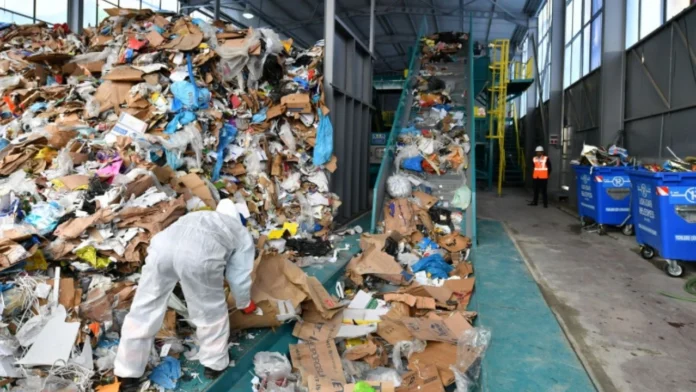Turkey has become a dumping ground for foreign waste, despite a 2017 government initiative led by first lady Emine Erdoğan promising better waste management, British newspaper The Guardian reported.
The Zero Waste Project aimed to minimize waste, encourage recycling and promote the use of sustainable materials over single-use products. By reducing waste and improving resource efficiency, the initiative sought to prevent pollution and support economic growth. Ultimately, the project aimed to extend the lifespan of products and lower waste disposal costs, contributing to a more sustainable and cost-effective economy.
Seven years after the launch of the program, it has been hailed as a success by the pro-government media. It was also awarded the Sustainable Development Goals (Global Goals) Action Award by the United Nations Development Programme (UNDP) in 2021.
According to the UNDP between 2017 to 2020, the program helped save 397 million tons of raw material, 315 million kilowatt-hour of energy, 345 million cubic meters of water and 50 million barrels of oil. In the same period, 17 million tons of usable waste was collected, 2 billion tons of greenhouse gas emissions were prevented and 209 million trees were saved by the project.
The Guardian reported that while the Emine Erdoğan-led program aimed to eliminate waste production within Turkey, the country simultaneously became one of the largest importers of foreign waste.
Within less than a year of the Zero Waste Project’s launch, Europe and America exported more than 200,000 tons of plastic waste to southeastern Turkey. Within three years of Emine Erdoğan’s announcement of the Zero Waste Project, more than 750,000 tons of old plastic was being diverted to Turkey from across Europe, turning Turkey into the single greatest recipient of plastic waste on the planet. The equivalent of one dump truck full of foreign garbage was entering the country every six minutes.
Some plastic waste was burned, supplying factories with cheap but highly polluting fuel. Meanwhile, non-recyclable and non-burnable waste ended up in landfills, damaging the environment and disrupting local farming.
Adana province became a center for imported waste, mainly from the United Kingdom. While the Zero Waste Project is still in effect, in an ironic turn Turkey’s President Recep Tayyip Erdoğan in 2019 introduced the “Ceyhan Petrochemical Industrial Zone” and said Adana province would become a petrochemical hub.
The Turkey Wealth Fund invested $10 billion to build a refinery and petrochemical plant in the Ceyhan district of Adana to reduce the foreign trade deficit in petrochemicals and refining.
Instead of just importing waste, Adana would now become a major producer of plastic, manufacturing around 3 billion pounds (1.36 million metric tons) of plastic per year, which is the equivalent of 60 billion plastic water bottles. The industrial zone started production in the second half of 2024.
According to The Guardian, this has marked an abandonment of Turkey’s commitment to a zero-waste future, as the country has now fully invested in plastic production rather than sustainability. Ultimately, economic and industrial interests have overridden environmental concerns.















